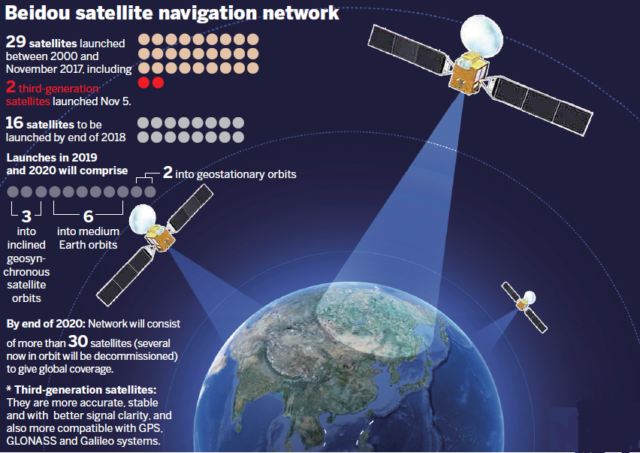PREVIOUS
BeiDou-3 navigation satellite
April 5 , 2018
2425 days
1072
0
- China has successfully launched pair of twin Beidou-3MEO satellites – Beidou-30 and Beidou-31 –into space.
- It has been launched as part of its third and final stage of launching its domestic Beidou (Compass) satellite navigation system.
- They were launched on board Long March-3B carrier rocket from Xichang Satellite Launch Centre in southwest China’s Sichuan Province. It was 269th mission for the Long March rocket family.

- The twin satellites are Medium Earth Orbit component of the third phase of Beidou satellite navigation system.
- They will work together with six previously launched BeiDou-3 satellites once they pass series of tests.
- They were developed by the Innovation Academy for Microsatellites at Chinese Academy of Sciences and China Academy of Launch Vehicle Technology, respectively.
BeiDou Navigation System
- BeiDou is 2nd generation of Chinese homegrown navigational system seen as rival to US’s Global Positioning System (GPS). It was named after Chinese term for plough or Big Dipper constellation.
- The first BeiDou satellite was sent into space in 2000. The system became operational in December 2011, with constellation of 10 satellites providing services in China only.
- In December 2012, it began offering services to customers in Asia-Pacific region. On its completion in 2020, it will provide services to global customers.
Leave a Reply
Your Comment is awaiting moderation.


